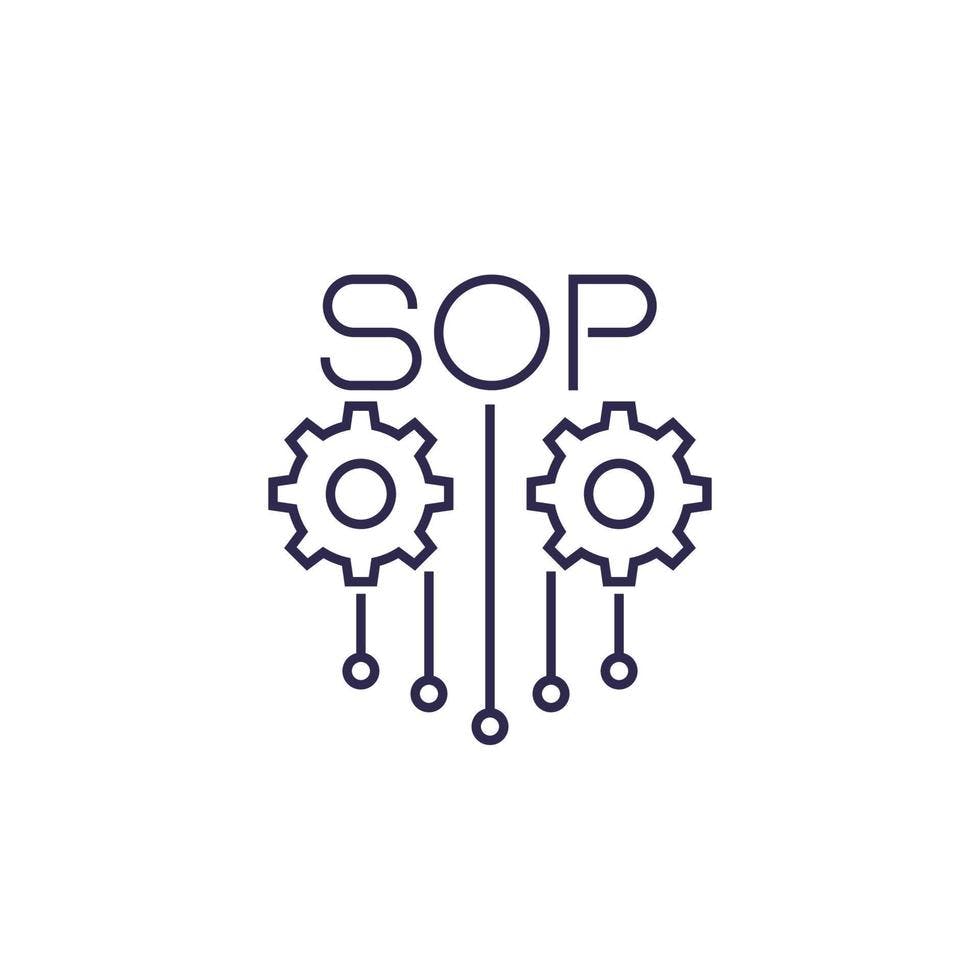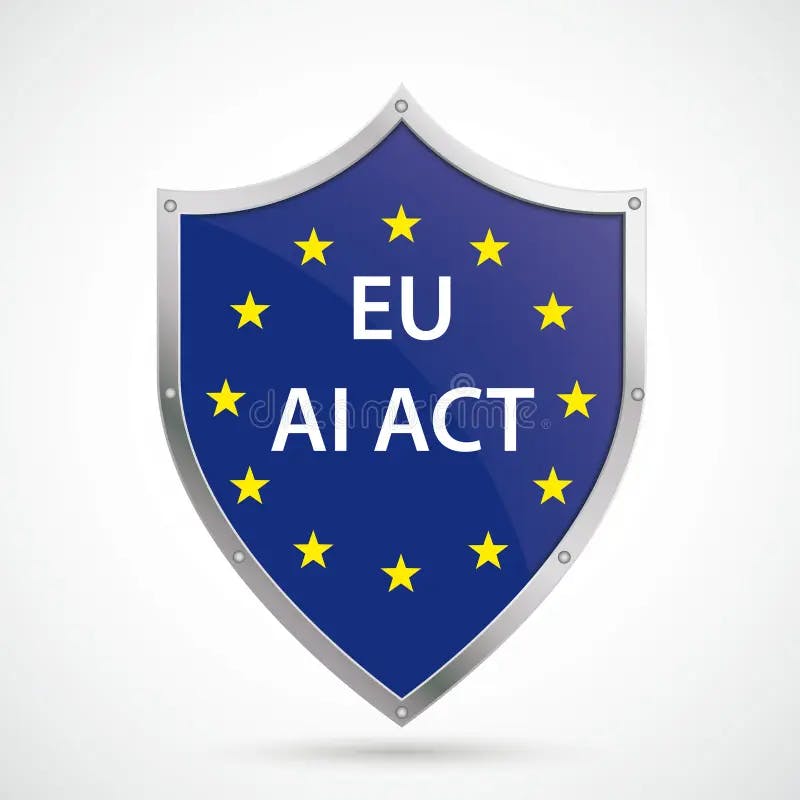Privacy Automation Tools for Marketing Agencies: 2025 Buyer's Guide
Managing privacy compliance manually across dozens of client accounts is no longer sustainable. With regulations like GDPR, CCPA, and LGPD creating complex compliance requirements, marketing agencies face mounting pressure to automate privacy workflows while maintaining service quality and client relationships.
Privacy automation tools marketing agencies have evolved from nice-to-have utilities into essential business infrastructure. Modern platforms enable agencies to scale privacy compliance across unlimited client properties while creating new revenue opportunities through privacy-as-a-service offerings.
This comprehensive buyer's guide evaluates the leading privacy automation platforms for 2025, comparing features, pricing, and agency-specific capabilities to help you make informed technology decisions that protect clients while driving business growth through effective privacy automation tools marketing agencies require.

Prioritizing user privacy is essential. Secure Privacy's free Privacy by Design Checklist helps you integrate privacy considerations into your development and data management processes.
What Is Privacy Automation for Marketing Agencies?
Privacy automation transforms manual compliance tasks into systematic, scalable processes. Instead of manually configuring cookie banners, managing consent logs, and generating compliance reports for each client, automated platforms (see our complete cookie consent automation guide) handle these workflows through centralized dashboards and intelligent automation that privacy automation tools marketing agencies depend on.
Marketing agency privacy management platforms coordinate multiple privacy functions simultaneously. These systems scan websites for tracking technologies, classify cookies according to regulatory requirements, deploy compliant consent interfaces, and maintain detailed audit trails—all while serving dozens or hundreds of client properties from unified control centers.
Key automation capabilities include:
Cookie Consent Automation deploys and maintains cookie banners across client websites with automatic regulatory compliance based on visitor location. Platforms detect user geography and serve appropriate consent experiences for GDPR, CCPA, LGPD, and other regional requirements without manual configuration.
Policy Generation and Maintenance creates legally compliant privacy policies tailored to each client's specific data practices and applicable regulations. Automated systems monitor regulatory changes and update policies accordingly, ensuring continued compliance without manual legal review.
Compliance Monitoring and Reporting provides real-time oversight of privacy practices across client portfolios. Automated dashboards track consent rates, policy compliance, and potential violations while generating executive reports that demonstrate ongoing value to clients.
Client-Facing Privacy Dashboards enable clients to monitor their website's privacy performance through branded interfaces. These self-service portals reduce agency support overhead while providing transparency into privacy operations and compliance status.
Core Features to Prioritize in 2025-2026
Multi-Site Client Management
Centralized portfolio oversight enables agencies to manage unlimited client properties from unified dashboards. Leading platforms organize clients by brand, geography, or service tier while providing hierarchical access controls that maintain client data separation and security.
Bulk configuration capabilities deploy privacy settings across multiple client sites simultaneously. Template-based approaches enable rapid deployment of proven compliance configurations while allowing client-specific customization for unique requirements or brand guidelines.
Scalable architecture supports agency growth without performance degradation or per-site licensing penalties. Enterprise-grade platforms handle thousands of client domains with consistent response times and feature availability regardless of portfolio size.
Marketing agencies managing dozens of client websites need bulk scanning tools.
Advanced Consent Storage and Audit Trails
Comprehensive consent logging maintains detailed records of user interactions with privacy interfaces. Modern platforms capture consent timestamps, banner versions presented, user choices selected, and withdrawal activities with tamper-proof audit trails that support regulatory investigations.
Cross-domain consent synchronization enables consistent user experiences across related client properties. Users who express privacy preferences on one domain receive appropriate treatment across affiliated sites, improving user experience while maintaining compliance accuracy.
Automated data retention management ensures consent records meet regulatory requirements while minimizing storage overhead. Intelligent retention policies automatically archive or delete consent data according to applicable laws and client-specific requirements.
Customizable User Interface and Branding
White-label customization enables agencies to present privacy solutions under their own branding. Complete customization includes branded dashboards, custom domains, support channels, and client-facing interfaces that maintain agency relationships while delivering technical excellence.
Client-specific branding allows individual clients to maintain their visual identity within privacy interfaces. Custom styling options ensure consent banners and preference centers integrate seamlessly with existing website designs and brand guidelines.
Responsive design optimization ensures privacy interfaces function effectively across desktop, mobile, and tablet devices. Mobile-first design approaches accommodate the reality of mobile-dominant web traffic while maintaining compliance effectiveness.
Comprehensive Reporting and Analytics
Executive-level reporting provides high-level compliance summaries suitable for client leadership meetings. Reports include consent rate trends, regulatory compliance status, and recommendations for optimization without overwhelming non-technical stakeholders with implementation details.
Operational analytics offer detailed insights into privacy performance metrics including consent funnel analysis, geographic compliance variations, and user behavior patterns. These insights enable data-driven optimization of consent experiences and compliance strategies.
Automated report generation delivers scheduled compliance reports to clients and internal teams. Customizable report templates ensure consistent communication while reducing manual reporting overhead for agency teams.
Global Regulatory Compliance Support
Multi-jurisdiction automation adapts privacy interfaces based on user location and applicable regulations. Intelligent geolocation detection serves GDPR-compliant experiences to European visitors while providing CCPA-focused marketing privacy interfaces for California users, all managed through unified configuration systems.
Regulatory update automation monitors privacy law developments and deploys necessary compliance adjustments automatically. This capability ensures continued protection as regulations evolve without requiring manual monitoring or emergency configuration changes.
Legal template libraries provide pre-approved privacy policies and consent language for major regulatory frameworks. These libraries reduce legal review requirements while ensuring compliance accuracy across diverse client portfolios.
Comparing Top Privacy Automation Platforms
Secure Privacy: Agency-Focused Innovation
Secure Privacy delivers comprehensive privacy automation tools marketing agencies need through purpose-built agency features and extensive white-label capabilities. The platform combines technical excellence with business-friendly agency management tools.
Agency-Specific Advantages:
- Unlimited client domains without per-site fees
- Complete white-label customization including branded dashboards
- Bulk client onboarding and template deployment
- Client access portals with role-based permissions
- Automated monthly compliance reporting
- Multi-language support for global client portfolios
Technical Capabilities:
- Real-time cookie scanning and classification
- Google Consent Mode v2 integration
- Global Privacy Control (GPC) signal support
- Cross-platform consent synchronization
- Comprehensive audit trail documentation
- API-first architecture for custom integrations
Pricing Structure: Transparent agency pricing with volume discounts and white-label options. No hidden fees or per-site charges that penalize growth.
Usercentrics: Enterprise-Grade Compliance
Usercentrics provides robust privacy compliance with extensive customization options and comprehensive API access. The platform emphasizes regulatory compliance and technical sophistication for complex agency requirements.
Key Features:
- Over 2,200 legal templates for data processing services
- Advanced consent optimization through A/B testing
- Extensive third-party integrations and SDK support
- Detailed compliance reporting and analytics
- Multi-tenant architecture for agency deployments
Considerations: Premium pricing structure may limit accessibility for smaller agencies. Complex feature set requires significant technical expertise for optimal utilization.
OneTrust: Comprehensive Privacy Platform
OneTrust offers unified consent and preference management within a broader privacy platform. The solution provides extensive enterprise features but may include unnecessary complexity for focused agency requirements.
Strengths:
- Comprehensive privacy program management beyond consent
- Extensive automation capabilities
- Strong enterprise support and training resources
- Detailed audit and compliance documentation
Limitations: Higher cost structure and complex implementation may exceed agency requirements focused primarily on client consent management.
Cookiebot CMP: Technical Excellence
Cookiebot provides sophisticated cookie scanning and consent management with strong technical capabilities. The platform emphasizes compliance accuracy and technical innovation.
Notable Features:
- Advanced cookie classification technology
- Comprehensive regulatory compliance coverage
- Strong integration ecosystem
- Detailed technical documentation and support
Agency Considerations: Limited agency-specific features may require additional tools for client management and white-label deployment.
White-Labeling and Privacy-as-a-Service Opportunities
Revenue Model Transformation
Privacy-as-a-service marketing agencies can create substantial recurring revenue streams through comprehensive privacy offerings. Research indicates privacy services represent a $2 billion market opportunity for agencies, with typical implementations generating $300+ monthly recurring revenue per client.
Service packaging strategies bundle privacy compliance with existing marketing retainers or offer standalone privacy subscriptions. Value-based pricing reflects the significant compliance risks and operational complexity that agencies eliminate for clients.
Client retention benefits increase through essential compliance services that create switching costs and deepen agency relationships. Privacy compliance becomes integral to client operations rather than optional marketing services.
Operational Benefits of White-Label Solutions
Brand consistency maintains agency relationships throughout client privacy experiences. White-label platforms ensure all client interactions reinforce agency branding rather than introducing third-party vendor relationships.
Technical expertise leverage enables agencies to offer sophisticated privacy solutions without internal development resources. White-label platforms provide enterprise-grade capabilities under agency branding with minimal technical overhead.
Scalability advantages support rapid client onboarding and portfolio expansion. Template-based deployment and bulk management tools enable agencies to scale privacy services efficiently without proportional increases in operational overhead.
Implementation and Support Considerations
Training and onboarding requirements vary significantly across platforms. Leading vendors provide comprehensive training programs, certification options, and ongoing support that enable agency teams to become privacy experts quickly.
Technical integration complexity affects implementation timelines and ongoing maintenance requirements. API-first platforms enable custom integrations while pre-built connectors reduce implementation complexity for standard agency technology stacks.
Client communication tools help agencies maintain transparency and trust during privacy transformations. Automated reporting, client dashboards, and educational resources support successful client relationships throughout privacy implementations.
Evaluation Framework for Agency Selection
Technical Requirements Assessment
Integration capabilities must align with existing agency technology stacks. Evaluate API availability, pre-built connectors for marketing platforms, and compatibility with client content management systems and e-commerce platforms.
Performance requirements include page load impact, mobile optimization, and global content delivery network coverage. Privacy solutions should enhance rather than degrade client website performance and user experiences.
Security standards encompass data encryption, access controls, audit logging, and compliance certifications. Agency reputation depends on maintaining client data security throughout privacy implementations.
Business Model Alignment
Pricing structure evaluation should consider total cost of ownership including setup fees, monthly subscriptions, usage-based charges, and volume discounts. Transparent pricing models enable accurate client proposals and margin planning.
Contract terms affect agency flexibility and client acquisition strategies. Favorable agency terms include month-to-month client billing, white-label rights, and reseller protection clauses.
Support quality impacts agency operations and client satisfaction. Evaluate response times, technical expertise, account management quality, and training resources available to agency teams.
Scalability and Growth Planning
Portfolio expansion capabilities determine long-term platform viability. Consider client onboarding processes, bulk management tools, and technical scalability as agency portfolios grow.
Feature development roadmaps indicate platform evolution and competitive positioning. Regular feature updates and regulatory compliance enhancements ensure continued platform relevance.
Partnership opportunities may include co-marketing support, referral programs, and preferred partner status that enhance agency competitive positioning and marketing effectiveness.
Implementation Best Practices
Platform Migration Strategies
Phased deployment reduces implementation risks while enabling learning and optimization. Begin with pilot clients who have simple requirements before expanding to complex multi-site implementations.
Training investment ensures agency teams develop expertise before client implementations. Comprehensive platform training reduces implementation errors and improves client satisfaction.
Communication planning manages client expectations throughout privacy transformations. Clear timelines, regular updates, and educational resources help clients understand privacy changes and their benefits.
Client Onboarding Optimization
Discovery processes identify client-specific requirements, existing privacy implementations, and compliance gaps. Thorough discovery enables accurate scoping and successful implementations.
Template development creates repeatable implementation approaches for common client types. Industry-specific templates reduce implementation time while ensuring compliance accuracy.
Success metrics definition enables implementation success measurement and ongoing optimization. Track consent rates, compliance status, client satisfaction, and operational efficiency improvements.
Future Trends in Agency Privacy Automation
Artificial Intelligence Integration
AI-powered optimization will enhance consent rate optimization through intelligent interface testing and personalization. Machine learning algorithms will identify optimal consent experiences for different user segments and regulatory environments.
Automated compliance monitoring will use AI to detect potential privacy violations and recommend corrective actions. Predictive analytics will identify compliance risks before they result in regulatory violations or client issues.
Intelligent reporting will provide actionable insights rather than raw data. AI-powered analysis will identify trends, anomalies, and opportunities within client privacy programs.
Regulatory Evolution Impact
Global privacy convergence toward consistent standards will simplify multi-jurisdiction compliance while potentially raising baseline requirements. Platforms must adapt to evolving regulatory landscapes while maintaining operational simplicity.
Enforcement intensification will increase compliance stakes and agency liability. Robust automation becomes essential for maintaining consistent compliance across diverse client portfolios.
New technology regulation addressing AI, biometric data, and emerging tracking methods will require platform adaptability and rapid compliance deployment capabilities.
FAQ: Privacy Automation for Marketing Agencies
How do privacy automation tools reduce agency operational costs?
Automation eliminates manual configuration, monitoring, and reporting tasks that typically require 10-15 hours monthly per client. Agencies report 60-80% reduction in privacy-related operational overhead through comprehensive automation platforms.
What's the difference between white-label and standard privacy tools?
White-label solutions enable complete agency branding including custom dashboards, domains, and support channels. Standard tools maintain vendor branding and may include vendor contact information that bypasses agency relationships.
Can agencies charge clients for privacy automation services?
Yes, most agencies charge $300-800 monthly for comprehensive privacy services including automation platform costs, monitoring, and compliance reporting. Privacy-as-a-service typically generates 40-60% gross margins.
How do platforms handle multiple client websites from one agency account?
Leading platforms provide hierarchical client organization with role-based access controls. Agencies manage unlimited client domains through unified dashboards while maintaining complete client data separation and security.
What training is required for agency teams to use privacy automation tools?
Most platforms require 4-8 hours of initial training with ongoing education for regulatory updates. Leading vendors provide certification programs, video libraries, and dedicated agency support to ensure success.
How quickly can agencies deploy privacy automation across existing client portfolios?
Template-based deployment enables 2-5 client implementations weekly depending on complexity. Most agencies complete portfolio migrations within 60-90 days including client communication and testing phases.
Get Started For Free with the
#1 Cookie Consent Platform.
No credit card required

AI Governance: The Complete Enterprise Guide to Risk, Compliance, and Accountability
Your organization uses AI to screen job candidates, personalize customer experiences, and automate credit decisions. Six months ago, these were software features. In 2026, they're regulated AI systems subject to the EU AI Act's high-risk classification—requiring technical documentation, logging infrastructure, human oversight mechanisms, and formal risk assessments before deployment. Non-compliance penalties reach €35 million or 7% of global revenue.
- Legal & News
- Data Protection

Data Protection Standard Operating Procedures (SOPs): A Practical Guide
Your privacy policy is published. Your data processing register exists somewhere in a shared drive. Your legal team signed off on vendor contracts last year. And yet, when a data subject access request arrives or a breach occurs at 11pm on a Friday, nobody knows exactly what to do, who owns the process, or what evidence needs to be captured.
- Data Protection
- Privacy Governance

EU AI Act 2026: Key Compliance Requirements for Enterprises
Your organization uses AI to screen job candidates, assess credit applications, and personalize customer experiences. These weren't regulated activities six months ago. In 2026, they're high-risk AI systems subject to the European Union's most comprehensive technology regulation to date—and non-compliance could cost your company 7% of global annual revenue.
- Legal & News
- Data Protection
- GDPR
- CCPA
